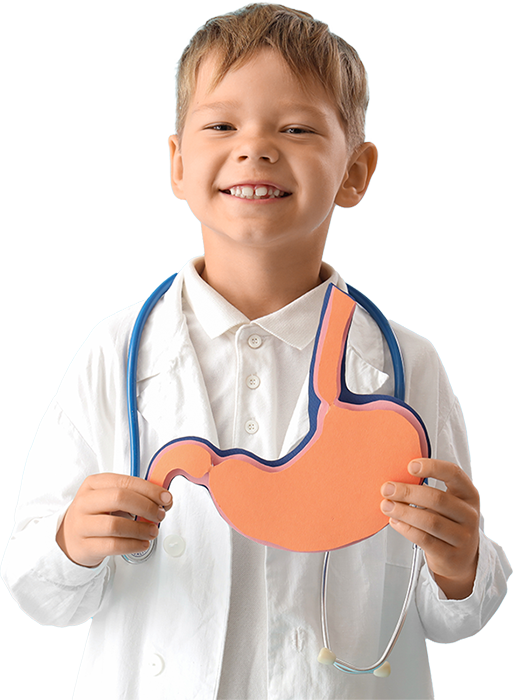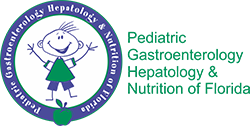Conditions We Treat
We work to listen to the concerns of both you and your child, and work with you to determine the treatment or management plan that works best for your family.

IBD – Crohns & Ulcerative Colitis
Crohns: Crohns disease is a chronic inflammatory bowel disease that affects the lining of the digestive tract. Crohns can cause abdominal pain, diarrhea, weight loss, and fatigue.
Ulcerative Colitis: Ulcerative Colitis is a chronic inflammatory bowel disease that causes inflammation in the digestive tract. UC can cause abdominal cramping, rectal bleeding, and bloody diarrhea.
IBS – Irritable Bowel Syndrome
IBS is an intestinal disorder causing belly pain, gas, diarrhea and constipation.
Complicated Esophageal Reflux (GERD)
Reflux is when the stomach acid goes up back into the esophagus and creates irritation within the esophagus.
Celiac Disease
Celiac disease is an immune reaction to eating gluten. Celiac disease can cause diarrhea, bloating, gas, fatigue, and anemia.
Chronic Abdominal Pain
Pain that persists for more than 3 months consistently or intermittently.
Chronic Constipation
When a patient passes less than 3 bowel movements a week, or has difficult movements.
Chronic Diarrhea
Three or more loose stools daily for at least 4 weeks
Hirschsprungs Disease
Hirchsprung’s disease is a rare congenital condition caused by a lack of nerve cells in the wall of the intestines. When it occurs, symptoms are often present immediately after birth. Most infants will present with distention of the abdomen and failure to pass stool within the first 48 hours after birth. The treatment for Hirschsprung’s disease involves surgery to remove the segment of bowel that does not have the nerve cells.
Poor weight gain (Failure to Thrive)
Many children are referred to GI for poor weight gain, sometimes referred to as failure to thrive. Poor weight gain can be caused by several different reasons, such as malabsorption, genetics, poor oral intake or even poor appetite.
Eosinophilic Esophagitis
EoE is a common allergy that attacks the esophagus. This often acts like acid reflux, but it not the same. With EoE, the esophagus is injured by certain foods. These trigger an immune reaction, leading to swelling and injury to the esophagus.
Feeding Difficulties
Almost all children have some difficulty at mealtime, ranging from picky eaters to those who won’t eat or drink enough to grow. Common problems affecting feeding in infants may include reflux, prematurity, or a milk protein allergy. In older children, feeding problems are more commonly seen among children with developmental delays, sensory disorders, and autism. However, multiple other reasons may result in feeding disorders, including anatomical or structural problems (cleft palate), chronic medical conditions, EoE, oral-sensory disorders, delayed introduction of foods, and behavioral mismanagement. Often, multiple factors contribute to feeding problems.
Cystic Fibrosis
CF is a chronic disease that is caused by changes in a gene that directs mucus production, leading to the production of abnormally thick mucus. Typically, CF patients will develop GI symptoms such as malabsorption and poor growth due to the thick mucus not allowing normal pancreatic enzyme secretion.
Hepatitis and Liver Disease
Hepatitis is a general term for inflammation of the liver that can be caused by a number of different things. Hepatitis is discovered through routine blood work but usually carries symptoms such as jaundice, dark urine, yellow eyes, fatigue, poor appetite, abdominal pain and pale stools. Often, doctors first suspect viral infections like hepatitis A, hepatitis B, hepatitis C, and Epstein-Barr viruses. However, there are many other infections that can cause hepatitis. In addition, noninfectious causes include autoimmune hepatitis, primary sclerosing cholangitis, alpha-one antitrypsin deficiency, fatty liver, gallstones, drug- or toxin-related liver disease (including alcohol and acetaminophen overdoses), Wilson disease, celiac disease, iron overload, and some muscle diseases.
